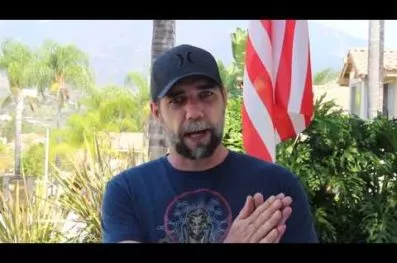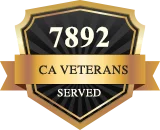Start a Business as a Veteran

Va Loans
REAL ESTATE FOR VETERANS
Start a Business as a Veteran
Using your VA Benefits to start a business – chasing the American Dream.

Peter Van Brady
Founder of SoCal VA Homes
Author: Avoiding Mistakes & Crushing Your Deals Using Your VA Loan
One way to avoid unemployment is… to start your own business! The essence of developing an idea and starting a business can be described in simple terms. Entrepreneurs find a need and create solutions. They create a product or service to fulfill that need. Entrepreneurs also see the deficiencies and draw backs in some products. They see products that have room for improvement, and they create better versions of that product or service! Some ideas change whole industries and change the way we live. Technology advances are classic examples. Once we played our music from vinyl, then next it was tape…and then came digital and low cost music sharing! But it doesn’t have to be technology that is the change. Uber and Lyft are ride-sharing “game changers,” on their way to eliminating an entire industry of transportation – taxis and shuttles.
Another way to start a business is just to model someone else. Repeating a success story has been done countless time before. Actually, you don’t need to be original to be successful! Find some help! There are literally thousands of mentors willing to help you along your path – for FREE. You can find them at places such as SCORE, an organization consisting of retired business people who volunteer their time to be mentors. We will talk more about SCORE in this chapter.
Did you know that you can call the VA for resources on starting you own business? A toll-free call center is available at 1-866-584-2344, where Veterans, military personnel or their family members can talk one-on-one with a business coach about how to start or expand a business. Topics and information include:
-
Information on business management, financing and marketing, as well as small-business conferences and business training opportunities.
-
Information about legislation affecting Veteran-owned business, including existing laws that require federal agencies to increase business opportunities for Veterans by setting aside a certain portion of their purchasing dollars for Veterans and service-disabled Veterans.
-
Inclusion in a Veteran’s business database for exposure to commercial and government business, plus recognition as a verified Veteran-owned or service-disabled Veteran-owned small business.
Who Qualifies to Access these Resources:
-
Veterans.
-
Service-disabled Veterans.
-
Active-duty service members who are eligible for the military’s Transition Assistance Program.
-
Reservists and National Guard members.
-
Current spouses of any of the above.
-
The widowed spouse of a service member or Veteran who died during service or of a service-connected disability.
-
Prepare a written outline of your idea.
-
Establish your business structure. A business must be formed within some kind of legal framework or as a sole proprietor. Determining the correct entity in which to form your business may be a challenging process. Your entity structure will affect the way you file your taxes. Your business will be officially “organized” within a specific state. A Small Business Development Center can assist you with state registration forms. To learn more about legal structure and business tax concerns go to IRS.gov. The alternative to all this is simply a “Sole Proprietorship.” You would report your revenue, expenses and net earnings or losses on Schedule “C” of your federal tax returns. If you organize a business entity, it will require its own tax ID.
-
Prepare a business plan. This is a complex process that will become the blueprint of how you will run your business, market your business, and determine the funding requirements and viability of your new business.
-
Have a business counselor review your business plan. The Association of Small Business Development Centers offers free consulting and low cost training to help new entrepreneurs realize their dream of business ownership, and to assist existing businesses on how to remain competitive in the complex marketplace of an ever-changing global economy. To find the nearest SBDC to you, go to: http://www.asbdc-us.org/ ; http://americassbdc.org/ or visit score.org and get connected with a free, successful, tech savvy mentor!
-
Implement the business plan. The Small Business Administration’s (SBA) website has information on starting a business at www.sba.gov and SCORE score.org is part of the SBA. SCORE is a valuable volunteer organization of retired business men and women available to mentor and guide you.
-
Register your Veteran-owned small business on the Vendor Information Pages (VIP) database (www.vetbiz.gov) of Veteran entrepreneurs.
-
The Department of Veterans Affairs has created the Center for Veterans Enterprise (CVE), which is solely dedicated to assisting Veterans in starting and building businesses. They maintain a web site that serves as the federal government portal for veteran-owned businesses known as vetbiz.gov.
Government Contracting
Did you know the U.S. Federal Government buys nearly $100 billion worth of goods and services from small businesses each year? Government contracts can offer significant opportunities for small businesses, but selling to the government requires a very different approach than selling to the commercial sector.
The SBA has created a series of free online contracting courses designed to help prospective and existing small businesses understand the basics about contracting with governmental agencies. Whether you’re just getting started or looking for ways to compete more successfully in the government contracting marketplace, check out the courses.
Government agency procurement officers have certain socioeconomic goals to meet in terms of the number of Veteran-owned, woman-owned, disadvantaged, and small businesses they work with. For example, if you’re a Veteran-owned, woman-owned, disadvantaged small business you offer three socioeconomic “points” to any agency that hires you. You should certainly discuss your VOB (Veteran Owned Business) status in conversations and through relationships.
Some additional resources include SCORE’s Veterans Fast Start Program which offers:
-
FREE Simple Steps Workshop: Get FREE access to the Simple Steps for Starting Your Business Workshop Series (or equivalent). It is five-part series will take you through the basics of entrepreneurship and pair you with a mentor to help you test the feasibility of your business idea.
-
FREE Business Mentoring: SCORE has over 13,000 mentors across 500 industries and is prime source for free and confidential business advice for small business entrepreneurs - in person at one of their chapters or online.
-
FREE Online Workshops: These are available 24 hours a day, 7 days a week on a variety of business topics to aid with your business planning.
-
FREE Templates & Tools: SCORE offers hundreds of free business templates, calculators, spreadsheets, document templates, tips and other resources to help you in your planning and operations.
Your Entity Set-Up is Important
-
S-Corp: Primarily taxed as a “pass through” to you as personal income.
-
C-Corp: Next level “up.” Corporate taxes with more protection from creditors and business liabilities.
-
LLC: Limited Liability Company – very common structure, easy organization.
-
LP: Limited Partnership – less common; limited personal liability
Again, a “Sole Proprietorship” may work for you requiring none of these set-up options. You’ll certainly want to give some consideration to what state you’ll file your entity in. That research will focus on where you are located, what product or service you are offering, where you are selling or offering it, and where your clients or customers reside. It will also include consideration of state entity taxation and entity maintenance fees with that state.
All entities are relatively easy to set up directly with the Secretary of State in each State in the union. Many filings can be completed online within minutes. Often, businesses file in Delaware. However, your business structure and IRS guidelines may disallow this.
You don't need a company like Legal Zoom or an attorney to file the paperwork for you. It’s actually very simple. Once you find the business section for the secretary of state in the state you want to file (google “SOS + state”), find the forms to complete and start your desired entity structure.
Search the current entities to make sure your business name is not already selected. With our real estate investment company, SARTRE, we filed more than twenty entities in five different states. The process was very easy and became routine very quickly.
Once you have your entity registered with the state (although you could probably reverse the steps, if you knew the name was available), go to IRS.gov, search and apply for a tax ID number (TIN) within the site. The IRS will instantly issue your entity a tax ID number online. You will need a tax ID Number to set up bank accounts in that business name. Again, you don’t need an attorney. But you can get additional advice!
Additional Resources
-
Financial Advice from CPAs. AICPA is connecting Veterans with CPAs across the country to provide up to FIVE hours of FREE financial advice to Veterans on starting or growing their business. Review the AICPA’s CPA Volunteer Directory to find a CPA who best meets your needs.
-
DOCSTOC - free trial of thousands of templates. DOCSTOC is a community for people to find and share professional documents used to start, grow, and manage their professional life and small business.
-
Microsoft Special Offer. How could this resource list be complete without something from the largest software giant? Learn about a no-cost voucher for technology skills training and certification at https://www.microsoft.com/learning/en-us/offers.aspx.
-
Rocket Lawyer: FIVE FREE LEGAL DOCUMENTS. Rocket Lawyer™ makes legal services easy and accessible for everyone, allowing you to customize legal documents that can be downloaded and shared instantly.
-
FREE Veterans Group Edition licenses: Veterans Group Edition licenses, good for up to three users, for one year, free of charge.
-
FREE Credit Card Reader: Square.com seems to work pretty well. Process credit card charges by attaching card reader to a smart phone or iPad.
-
Finding funding for your business: Grants.gov offers free money allocated to help special groups of people.
-
SBA Patriot Express is a new loan program for the Veteran community. The U.S. Small Business Administration has announced the SBA’s Patriot Express Pilot Loan Initiative for Veterans and members of the military community wanting to establish or expand small businesses. Eligible military community members include: Veterans, Service-disabled Veterans, Active-duty service members eligible for the military’s Transition Assistance Program, Reservists and National Guard members, current spouses of any of the above, and the widowed spouse of a service member or Veteran who died during service or of a service-connected disability. The SBA and its resource partners are focusing additional efforts on counseling and training to augment this loan initiative. Patriot Express loan proceeds can be used for most business purposes including:
-
Start up costs
-
Equipment purchases
-
Business-occupied real-estate purchases
-
Inventory
-
Infusing working capital
-
Managing your business
-
Expansion
-
Preparing your business for the possibility of your deployment
-
Setting up to sell goods and services to the government
-
Recovery from declared disasters.
Patriot Express loans feature the SBA’s lowest interest rates for business loans, generally depending upon the size and maturity of the loan, with terms as long as thirty years. Your local SBA district office will have a listing of Patriot Express lenders in your area.
For assistance in starting your own business, we would love to hear your plans! Let SoCal VA Homes help. Call us at 949-268-7742.
As Seen on ABC 10 5:00 O’Clock News












